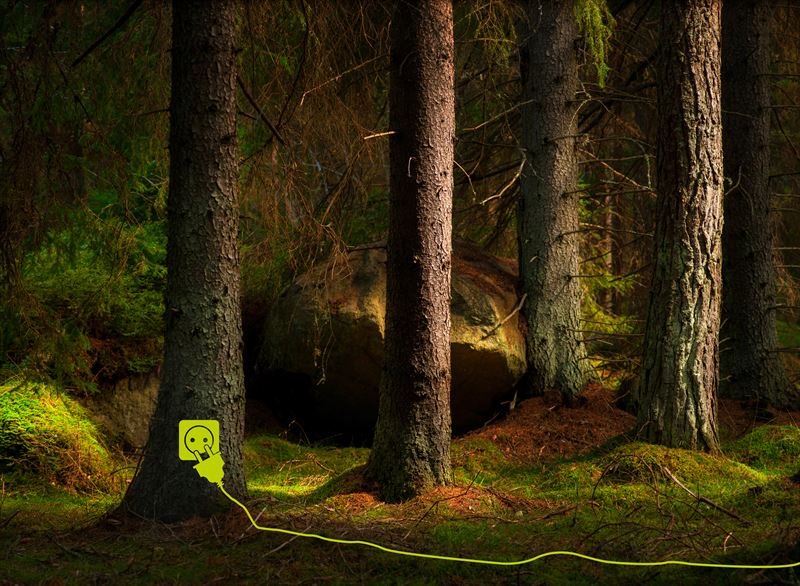More green electricity and heat from forests

In 2017, Södra delivered more green electricity to the national electricity grid than ever before, and six times more compared with 2010. In the same year, Södra delivered heat equivalent to the district heating requirements of 25,000 homes. The increase in energy deliveries was enabled by Södra’s investments in its pulp mills over the past few years.
Since 2010, Södra has transformed from an electricity purchaser to becoming self-sufficient and, now, is also a major supplier of green electricity to the national electricity grid. The electricity is generated from the forest biomass processed at Södra’s mills. In 2017, a total of 335 gigawatt hours (GWh*) of electricity was delivered, equivalent to the annual consumption of 130,000 electric cars**. This represents Södra’s largest-ever electricity delivery.
“These deliveries are very positive. Over the past few years, we have invested SEK 6 billion in our pulp mills to increase production, which has also led to higher generation of green electricity. Sweden’s objective for 2030 is to increase the number of electric cars from 50,000 to 1,000,000, thereby increasing the amount of electricity required for road transport from approximately 100 GWh to 2,500-3,000 GWh. The forest industry can make a contribution here, and this is one of many examples of how forests can play a key role in the transition to a bioeconomy,” said Henric Dernegård, Energy Co-ordinator, Södra.
In addition to green electricity, Södra also delivered 414 GWh of heating to district heating networks in 2017, equivalent to the heating requirements of 25,000 homes***. The heating is delivered to nearby communities from Södra’s sawmills at Kinda and Torsås, and to Varberg, Karlshamn and Mönsterås from Södra’s three pulp mills.
“Deliveries to district heating networks mainly comprise excess heat from production processes. Our goal is to achieve resource efficiency and create social value by using every part of the tree,” said Henric Dernegård.
While Södra has been self-sufficient in green electricity since 2010, efforts are also under way to reduce Södra’s electricity consumption. One of Södra’s sustainability targets is resource efficiency – to reduce electricity and heating consumption by at least 10 percent by 2025.
*) 1 GWh = 1,000 MWh = 1,000,000 kWh = 1,000,000,000 Wh.
**) A typical electric car model consumes 2 kWh of electricity per 10 kilometres and the average distance travelled by a passenger car is 12,240 kilometres per year. (https://www.elbilsstatistik.se/elbilsstatistik)
(https://www.trafa.se/vagtrafik/korstrackor/)
***) According to the Swedish Energy Agency’s report “Energy statistics for one and two-dwelling buildings in 2016” (ES 2017:03) the average energy consumption for heating and hot water was 16,200 kWh per dwelling in Sweden in 2016.
For more information, please contact:
Henric Dernegård, Energy Co-ordinator, Södra
Tel: +46 (0)470-152 63
E-mail: henric.dernegard@sodra.com
Södra’s Pressroom
Tel: +46 (0)470 890 90
E-mail:press@sodra.com
Södra was founded in 1938 and is the largest forest-owner association in Sweden, with a membership of more than 51,000 forest owners. We engage in modern and responsible forestry, and operate state-of-the-art mills in which we process our raw material. Net sales in 2017 were 20.5 SEK billion and there were 3,400 employees. Through value-generating relationships and a long-term approach, Södra is leading the way for the future of sustainable forestry.
Tags:


